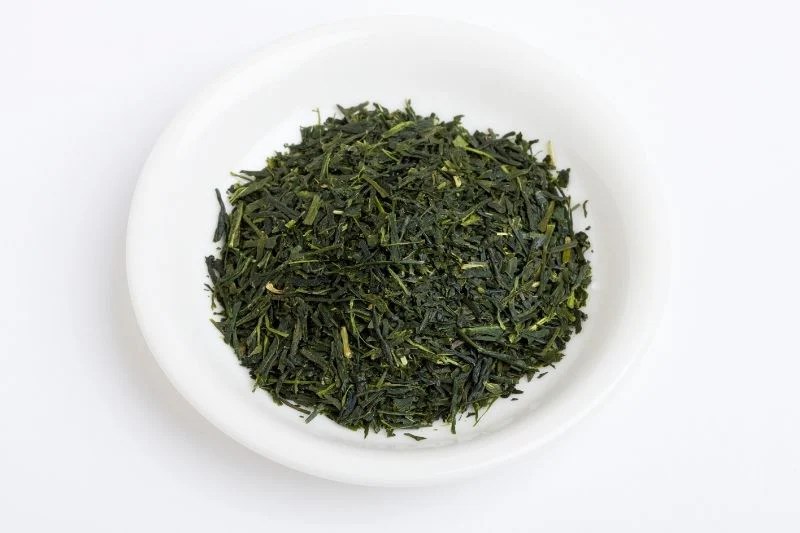
Everything You Need To Know About Aracha
Aracha 荒茶 means “crude tea” or “Unrefined” and translates as “wild tea” in English. Such Japanese green tea is a result of the first processing stage, i.e. steaming, rolling, and drying, which is done right after picking. It includes the whole leaf, blade stems, and fine hair of the tea plant and is a much darker green with a bold flavor. Tea leaves and stems at this stage are unrefined, broken, and uneven in form.
Archa is consumed just like this whole and does not need the later refining process which vendors do to make the leaves more refined in form and get different flavors. Wholesalers make Aracha into a more polished form by taking it through a second process known as Shiage 仕上げ, which consists of three steps: firing, sorting, and blending. The final product you see is Sencha or other types of green tea, which you can say is the refined form of Aracha. Tea leaves are later sorted in terms of size, grade, and blend to get different kinds of specific flavors.
Aracha is unique in its own way because it contains whole tea plant parts instead of just leaves from a just harvest. Big companies sometimes blend tea leaves obtained from different tea plantations, and the process is known as blending. It is unavoidable because big companies need to fulfill their demand and cannot rely on a single plantation.

Brewing
The brewing of Aracha depends on the type of plant it comes from, for example, Aracha from the Gyokuro plant is brewed just like gyokuro tea at low temperature and for an extended period. The same goes for Aracha which comes from Sencha, and most of the Aracha you see in the market is from Sencha plants. For a better understanding, check the guidelines and instructions on the package. Generally, you take two teaspoons of Aracha per person and steep it for 40 seconds in 365ml of 90-degree hot water. Serve and enjoy the grassy aroma and intense taste of green tea.
Related Articles You May Be Interested






Leave a Reply